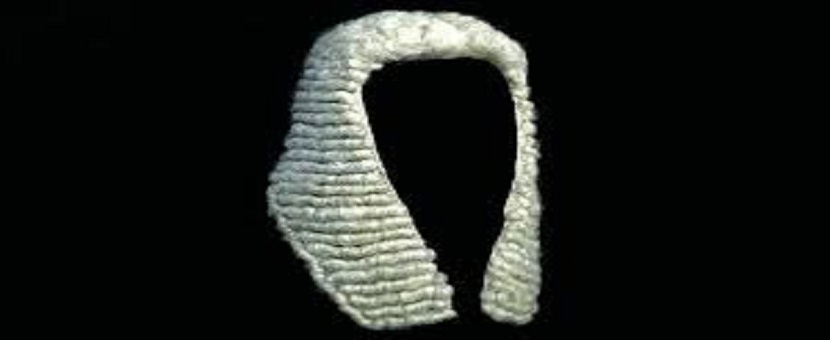Ogheneovu v. Federal Republic of Nigeria [2019] 13 NWLR (Pt. 1689) 235 at 269, per Eko, JSC:
“Mr. Kupolati, Appellant’s Counsel before us, was also the Counsel retained by this same Appellant at the lower Court. To say the least, the formulation of the spurious appeal at the lower Court is just a mere pretext, albeit a synthetic trumpery, to further appeal to this Court to foist this fanciful academic appeal. Shakespeare, of this appeal, would have lamented that it is full of sound and fury, and yet it signifies nothing. Frivolous and vexatious appeals to this Court are, these days, becoming a vogue apparently for some ulterior purpose by some legal practitioners applying for the privilege of being conferred with the rank of Senior Advocate of Nigeria. The abuse of court’s process has become the bane of this Court. Other useful business and time of this Court consequently suffer.”
Notes:
The Supreme Court was infuriated at the filing of the appeal because the case has to do with the conviction and sentencing of the Appellant for an offence bordering on dealing in cannabis sativa (Indian Hemp). The conviction was based on the Appellant’s plea of guilt to the charge and his earlier confessional statement (together with the illegal substance and chemist report) which were all tendered and admitted in evidence without any objections, and in the presence of two Counsel representing him in Court.
Taiwo Kupolati, Esq., on behalf of the Appellant, however pursued both the appeal to the Court of Appeal and Supreme Court where he raised arguments against the admissibility of the confessional statement. Learned Counsel contended amongst others that the Appellant was an illiterate. This is notwithstanding that he signed the statement and was educated up to Primary School level, as found by the Court. The Court was not pleased. Eko, JSC expressed his displeasure thus:
“It was most presumptuous on the part of the Appellant’s Counsel to submit, as he did stridently and fastidiously, that the Appellant was an illiterate who could not read and write, nor understand English Language merely because he is an Urhobo by tribe. The fact that the Appellant is Urhobo by tribe does not ipso facto make him an illiterate… It is not lawful for Counsel, in the guise of advocacy, to lead evidence from the Bar or concoct facts in the Final Address or Brief of Argument.”
What is even more interesting is that the Supreme Court found that even if the confessional statement was to be struck down, the conviction and sentencing could still stand in the face of the Appellant’s plea of guilt and other available unchallenged evidence. Sanusi, JSC explained:
“Having said all that I have posited above, it is apposite to stress here, that even without Exhibit A, i.e., the confessional statement of the Appellant or if it was wrongly admitted in evidence, the Appellant could still be convicted by the trial Court in view of or based on his plea of “guilty” of the offence at the trial Court when he was arraigned before it on 27th July, 2011…”
According to Mary Peter-Odili, JSC:
“There is no gain saying that the issue raised here by the Appellant is a non-starter without substance or anything to hang on as it is an argument raised outside the facts of the case.”
In sum, the Supreme Court concluded that the appeal was not worth pursuing at all. The Appellant’s Counsel had himself to blame for taking advocacy too far.
Taiwo Kupolati Esq. is a good lawyer
Although Learned Counsel, Taiwo Kupolati Esq., found himself at the receiving end of the Supreme Court’s stroke, it is only fair to point out that Learned Counsel remains one of the brightest minds in the legal industry in Nigeria. He has in recent past received a number of commendations as collected here. For instance, in Alhaji Liadi Busari & Ors. v. Oba Yisau Goriola Oseni & Ors. [1992] 4 NWLR (Pt. 237) 557 at 581, the Court of Appeal, per Tobi JCA (as he then was and of blessed memory) commended Counsel’s Brief of Argument on behalf of the Appellants thus:
“Now to the Appellants’ Brief. Perhaps apart from a few volatile attacks on the way the learned trial Judge arrived at his decision, and particularly, the way he wrote the ruling, the brief of the Appellants, in my humble view, is well written, well articulated and well argued. It contains very useful law and it is prolific both in character and in content. As a matter of fact, it is one sound brief I have read in recent times.”
Frivolous appeals for sake of Silk Rank is the trend
Having said that, the fact remains that it has truly become a trend for lawyers aspiring to join the Inner Bar to file appeals at appellate courts, irrespective of whether there are arguable grounds of appeal. The Courts have recently moved against lawyers found wanting by awarding huge costs to be personally paid by Counsel. Not too long ago, the Supreme Court decried filing of frivolous appeals on settled principles of law.
More so, it has been held that a lawyer has a duty to advise his client against pursuing a useless appeal.
All Learned Counsel should take heed to wise counsel!














